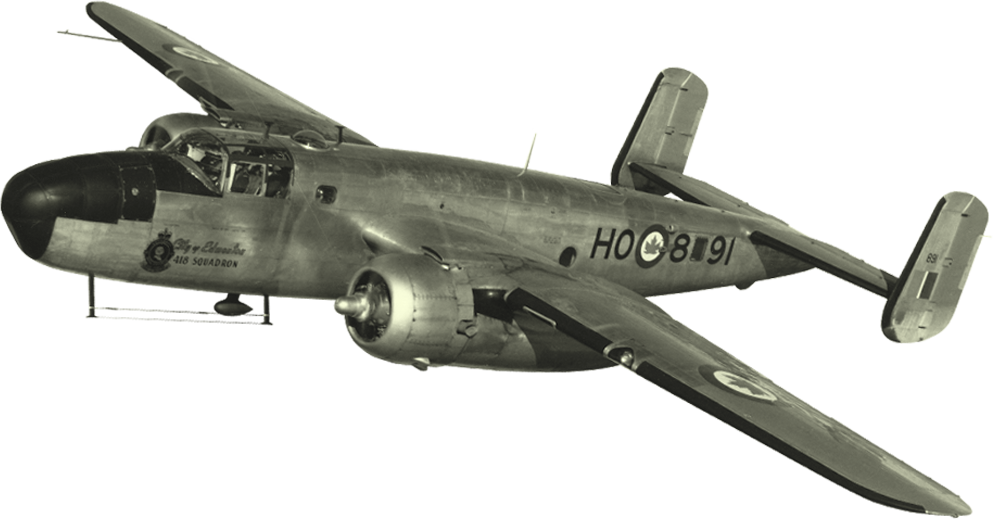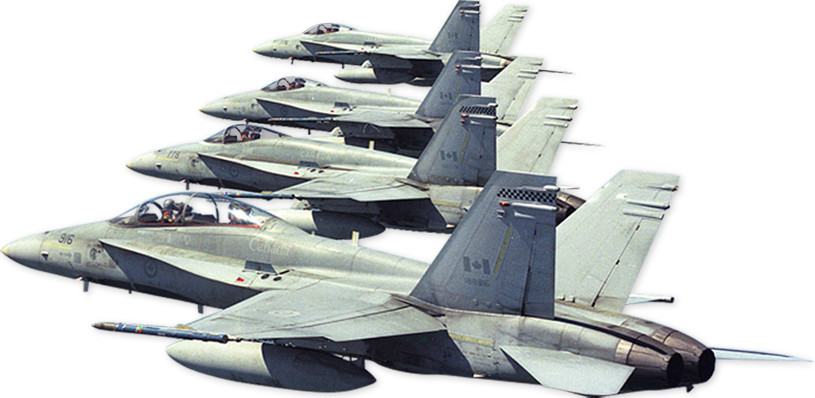HARRIS,
Glen Royal
Flying Officer,
No.432 Squadron,
J17193
Mention in Despatches
RCAF Personnel Awards 1939-1949
Description (click to view)
HARRIS, F/O Glen Royal (J17193) - Mention in Despatches - No.432 Squadron - Award effective 8 June 1944 as per London Gazette of that date and AFRO 1729/44 dated 11 August 1944. Born in Niagara Falls, Ontario, 28 June 1919; home in Woodstock, Ontario. Wife in Stratford, Ontario. Enlisted in London, Ontario, 7 February 1941. At No.1 Manning Depot, Toronto, 7 February to 10 April 1941 and No.14 SFTS, Aylmer, 11 April to 4 May 1941 (non-flying duties). Posted to No.1 ITS, Toronto, 5 May 1941; to Composite Training School, tenton, 10 June 1941; promoted Leading Aircraftman on 24 July 1941; to No.3 WS, Winnipeg, 2 August 1941; graduated 20 December 1941)and posted to No.5 BGS, Dafoe (graduated 19 January 1942). To "Y" Depot, Halifax, 21 January 1942; taken on strength of No.3 Personnel Reception Centre, Bournemouth, 20 February 1942; to No.1 Signals School, 24 March 1942; to No.2 (O) AFU, 11 May 1942; to No.29 OTU, 9 June 1942; commissioned 3 January 1943; to No.1660 Conversion Unit, 5 January 1943. Posted to No.57 Squadron, 18 February 1943; promoted Flying Officer, 3 July 1943; posted to No.29 OTU, 25 August 1943; to No.82 OTU, 29 February 1944. Posted to RCAF Overseas Headquarters, 5 June 1944. Special leave in Canada, 14 June to 4 August 1944.To No.61 Base, 2 September 1944; to No.432 Squadron, 25 October 1944. Promoted Flight Lieutenant, 3 January 1945. Killed in action 6 March 1945 (Halifax RG475); buried in UK. No citation in AFRO. It would appear that this honour was for work at No.29 OTU. As of 8 March 1944, he had flown 567 hours (52 in previous six months) and S/.L C.M. Hill wrote:
This officer is generally satisfactory and, in some respects, above average. He has given complete satisfaction during his tour of duty at 29 OTU.
Circumstances of Death: Halifax RG475 "L" took off at 1630 hours, 5 March 1945 to bomb Chemnitz. The crew completed their mission but crashed north of Walton-on-Maze on the return flight; there were no survivors. The crew were as follows:
S/L E.A. Hayes (pilot, 16 trips, 105 hours five minutes flown)
F/L J.G. Clouthier (second pilot, one trip, six hours 55 minutes flown)
F/O C.M. Hay, DSO (navigator, 19 trips, 119 hours 25 minutes flown)
P/O J.D. Ringrose (air bomber, 14 trips, 93 hours 15 minutes)
F/L G.R. Harris (WOP/AG, eight trips, 53 hours 45 minutes)
FS M.B. Nielson (air gunner, 14 trips, 89 hours 55 minutes)
FS G.M. Ordser (air gunner, eleven trips, 73 hours 30 minutes)
Sergeant D.M. Cooke (RAF, flight engineer, 14 trips, 93 hours 15 minutes).
RCAF Press Release No. 2428 dated 21 July 1943 reads:
Two Canadians who fly in a Lancaster bomber can thank the trigger-wise fingers of their Welsh rear-gunner that they returned safely from a recent bombing attack on Cologne.
They are F/O Robert W. (Bob) Randolph, of 40 Dominion Street, Winnipeg, and P/O Glen Harris, of St. Andrew’s Street, Stratford, Ontario.
A JU88 attacked them as the bomber started on its run over the target, but the Welshman, F/S Ronald “Taffy” Roberts, DFM, shot it down in flames.
But before it dived like a flaming torch into the clouds banked high over the target, the German did considerable damage to the Lancaster.
The English mid-upper gunner was fatally wounded when an explosive shell burst inside his turret. He died the following day.
The petrol cocks were smashed, and the severely damaged bomber returned to England carrying 500 gallons of useless petrol. The precious liquid could not be fed to the engines.
“We just managed to make an airfield near the coast,” said P/O Harris, telling the story. “It was a near thing. As a matter of fact, we had to abandon our flight plan and return by the nearest route, which meant cutting across heavily defended areas.”
It was the third fighter destroyed by F/S Roberts, who has also a “probable to his credit”. He is on his second operational tour.
“We made a perfect target against the white cloud tops below us,” said Harris, who is wireless operator in the bomber. “As soon as we were attacked, we jettisoned the bomb-load, but they must have fallen on the target. We were right over it at the time.”
“Taffy got his guns to bear on the fighter so fast that he had actually started firing when he called to the skipper to turn. We saw the German burst into flames and go down, but he turned us into a sieve before he went. We were lucky to get back.”
The elevator of the Lancaster was damaged, and Randolph, the bomb-aimer, assisted the captain, F/L Jack Greig, of London, England, in taking evasive action. Meanwhile, Harris went back to aid the badly wounded mid-gunner, but he was unable to remove his unconscious form from the turret.
Many of the navigational instruments were also damaged, and with the serious shortage of petrol, due to the damage to the petrol cocks of the inboard tanks, it was touch and go for a time as to whether or not the bomber could reach England.
It was the determination and hard work of the pilot, navigator and wireless operator that finally brought them through.
Randolph and Harris and their crewmates are near the end of their tour of operations, and have bombed nearly all the targets in Germany and several in France and Italy.
First target they bombed was Dusseldorf in a Wellington. A few nights later, in the same aircraft, they bombed Bremen.
Since joining their Lancaster squadron, they have flown over Berlin twice and Essen four times. They have done the long trip to bomb the Skoda Works at Pilzen, and among other “marathons” they have done are Munich, Frederickshaven and Spezia.
When they bombed Frederickshaven, they continued on to North Africa and bombed Spezia on the return trip a few nights later. It was the third time they had dropped loads on the Italian port.
And they have been to all the targets in Ruhr, including Duisburg, Wuppertal and Dortmund.
But it will be some weeks before Harris gets a chance to go on with his tour. He froze his finger-tips when he was vainly trying to get the wounded mid-upper gunner out of the turret the night of the Cologne raid.
“They’re okay now,” he remarked, as he was telling the story of that raid. “But,” he added, with a grimace, “the M.O. says no, so I guess I’ve had it for a while.”








